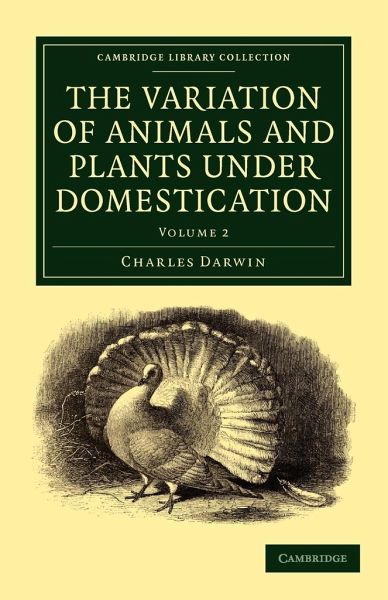
The Variation of Animals and Plants Under Domestication - Volume 2

PAYBACK Punkte
31 °P sammeln!
A key text in the development of Darwin's thought and an early defence of natural selection against theories of design.


Rechnungen
Bestellstatus
Retourenschein
Storno